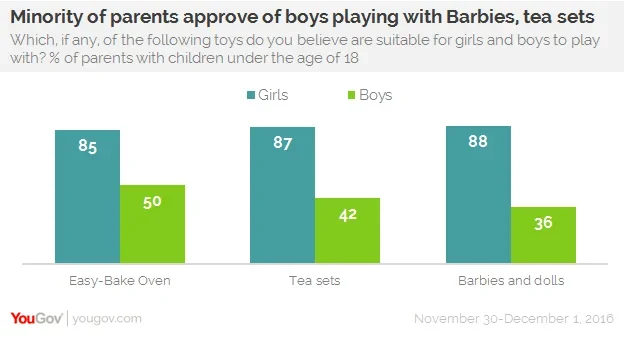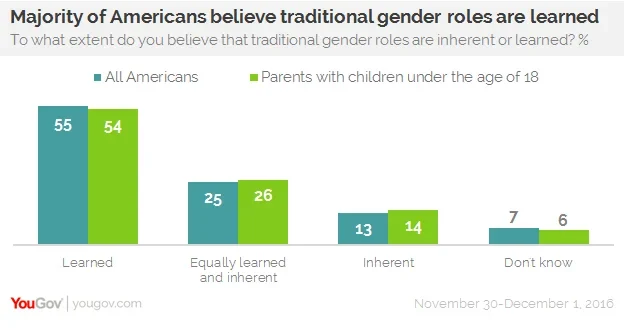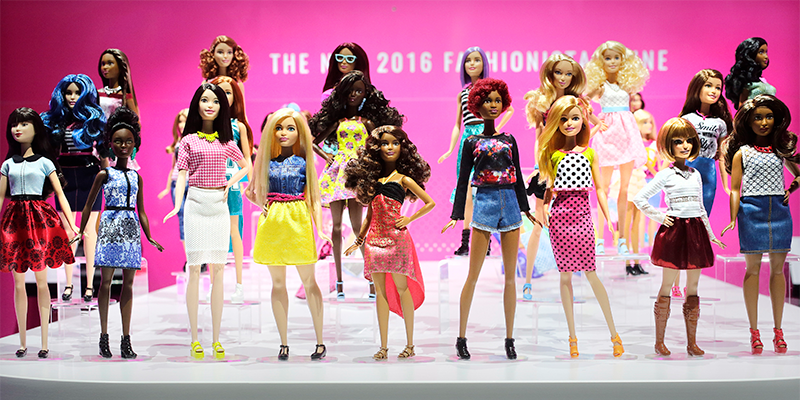While most parents approve of girls playing with toys marketed to boys, a minority of adults approve of the opposite
It late 2014, the Atlantic published an article arguing that today's toys are marketed in a more gender-specific manner than they were 50 years ago — meaning, the idea that blue trains are for boys and pink dolls are for girls has only grown stronger. Indeed, just last April the White House issued a statement on the subject, affirming that the toys children play with, combined with the media they consume, help shape their interests, ambitions, and skills. This, in turn, influences the subjects they study in school and, ultimately, the careers they choose to pursue.
Likewise, new data from YouGov shows that most parents agree it's important for children to play with a wide range of toys, as opposed to strictly sticking with gender-specific products. At the same time, parents are more likely than not to think today's toys are too gender-specific.
Further data shows that the majority of parents with children under the age of 18 believe it's suitable for girls to play with traditional toys marketed to boys, such as action figures and Hot Wheels. On the other hand, parents aren't as open-minded when it comes to boys playing with toys designed for girls. When asked if it's suitable for young boys to play with Barbies and dolls, for example, only 36% of US parents agreed. Meanwhile, 42% approved of boys playing with tea sets.

When asked to identify the origin of traditional gender roles, the majority of both parents and the general public came down on the side of nurture over nature: 55% of Americans reported that traditional gender roles are learned, while only 13% said they were inherent. A quarter of all respondents indicated that gender roles are part learned, part inherent.











